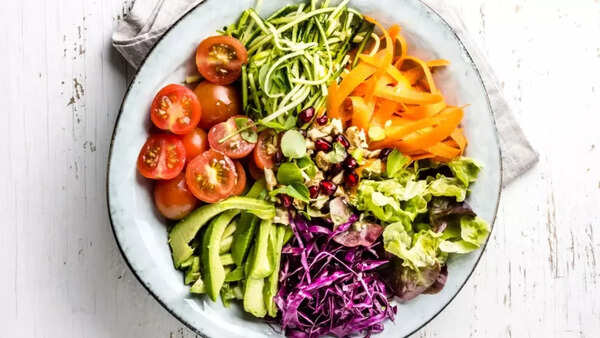A recent study suggests that a low-fat vegan diet may offer even greater health benefits than the widely acclaimed Mediterranean diet, particularly in reducing the risk of diabetes and promoting weight loss.

The research, conducted by the Physicians Committee for Responsible Medicine and published in Frontiers in Nutrition, reveals that a vegan diet significantly lowers dietary acid load compared to the Mediterranean diet. This reduction is associated with both weight loss and improved metabolic health.
The study focused on the impact of dietary acid load, a factor linked to weight gain and diabetes risk.
Hana Kahleova, MD, PhD, director of clinical research at the Physicians Committee and lead author of the study, explained, "Eating acid-producing foods like meat, eggs, and dairy can increase the dietary acid load, or the amount of acids consumed, causing inflammation linked to weight gain. But replacing animal products with plant-based foods like leafy greens, berries, and legumes can help promote weight loss and create a healthy gut microbiome."

The study involved 62 overweight adults in a randomized crossover trial. Participants followed either a low-fat vegan diet or a Mediterranean diet, with a four-week washout period in between, followed by 16 weeks on the alternate diet. Researchers meticulously analyzed dietary records to calculate dietary acid load using two key scores: Potential Renal Acid Load (PRAL) and Net Endogenous Acid Production (NEAP). Higher scores indicate a higher dietary acid load.

The study's findings highlighted that animal products, including meat, fish, eggs, and cheese, increased acid production in the body. This elevated dietary acid load is associated with chronic inflammation, which can disrupt metabolism and contribute to weight gain.
Conversely, plant-based diets, known for their alkalizing properties, were linked to weight loss, improved insulin sensitivity, and lower blood pressure.
Furthermore, both PRAL and NEAP scores significantly decreased in participants following the vegan diet, while no significant change was observed with the Mediterranean diet. The reduction in dietary acid load was directly correlated with weight loss, even after accounting for changes in energy intake. Participants on the vegan diet experienced an average weight loss of 13.2 pounds, compared to no change on the Mediterranean diet.
Researchers suggest that the vegan diet's alkalizing effect raises the body's pH level, making it less acidic and potentially promoting weight loss.
Foods that contribute to this alkalizing effect include:
Newer articles
Older articles
 Rishabh Pant: Greg Chappell Hails India Star as Cricket Revolutionary
Rishabh Pant: Greg Chappell Hails India Star as Cricket Revolutionary
 Gavaskar Calls for Kuldeep Yadav's Inclusion in Second Test Amid Bumrah Fitness Concerns
Gavaskar Calls for Kuldeep Yadav's Inclusion in Second Test Amid Bumrah Fitness Concerns
 Google Maps to Boost Navigation Accuracy with Fused Orientation Provider API
Google Maps to Boost Navigation Accuracy with Fused Orientation Provider API
 Global Vaccination Rates Plunge: Millions of Children Now Vulnerable to Preventable Diseases
Global Vaccination Rates Plunge: Millions of Children Now Vulnerable to Preventable Diseases
 Skin Cancer Alert: How to Identify Suspicious Moles and Early Warning Signs
Skin Cancer Alert: How to Identify Suspicious Moles and Early Warning Signs
 Suryakumar Yadav's Sports Hernia: Understanding the Injury, Recovery, and Risk Factors for Athletes
Suryakumar Yadav's Sports Hernia: Understanding the Injury, Recovery, and Risk Factors for Athletes
 Ashada Gupt Navratri 2025: Unveiling the Hidden Significance, Dates, and Rituals of the Monsoon Festival
Ashada Gupt Navratri 2025: Unveiling the Hidden Significance, Dates, and Rituals of the Monsoon Festival
 Vijay Sethupathi Apologizes Amid Controversy Over Son Surya's Debut Film 'Phoenix' and Alleged Video Removal Pressure
Vijay Sethupathi Apologizes Amid Controversy Over Son Surya's Debut Film 'Phoenix' and Alleged Video Removal Pressure
 TSMC Regains Top 10 Global Company Ranking Amid AI Chip Demand Surge
TSMC Regains Top 10 Global Company Ranking Amid AI Chip Demand Surge
 IRCTC Launches AI Chatbot for Seamless Train Ticket Booking, Refunds, and Information Access
IRCTC Launches AI Chatbot for Seamless Train Ticket Booking, Refunds, and Information Access